- Home
- Jane Arbor
Lake of Shadows
Lake of Shadows Read online
LAKE OF SHADOWS
Jane Arbor
It was a great sacrifice for Kate to give up her job in London and return to her Irish lakeside home to care for an ailing father—so it was particularly unfair when Basil, whom she had hoped to marry, took the opportunity to walk out on her. But Kate’s unselfishness was to get its reward in the end.
CHAPTER ONE
For Kate’s last evening in London, Basil had thought of everything.
Although only that noon he had flown in from a Scottish business trip to receive Kate’s message at his office, he had at once rung her back to make the date. Since then his secretary had confirmed tomorrow’s Aer Lingus flight to Cork and laid on a taxi to take Kate to the airport; he had booked their usual table in “their” restaurant behind Shepherd Market; had arranged for a posy of her favourite lilies-of-the-valley to lie beside her place and, by now knowing her tastes as well as his own, had ordered the dinner and the wine without needing to consult her.
Outside the March night was unseasonably gentle, and when the waiter suggested they might care to have coffee served on the pavement terrace they had adjourned there, ostensibly for coffee, but really to hold hands and to exchange a light kiss or two across the tiny table under cover of the darkness.
To have Basil so—alone and just for her—had always spelled Kate’s greatest happiness since their meeting at a noisy cocktail party from which they had both soon escaped.
That night, though an autumn one, had been just such another as this—dark, warm, made for lovers’ beginnings—and had been the first of as many as Basil could snatch for their sharing from his hectic affaire life as the brilliant junior director of Kent Holdings of which his father, Charles Kent, was chief. And though Kate had never ceased to marvel at what Basil saw in her for his interest, let alone his love, she was more than content to have it so.
True, her mirror reflected back the dark good looks and delicate features which generations of Ruthvens always passed on to one daughter in each new family. Dead Aunt Ellen had had them and so had Great-Aunt Maire, and of the current three sisters Kate was the chosen one.
Norah was round, grey-eyed and brownish, Bridie was as fair as their English mother had been. It was Kate’s hair which was a smooth, black curve, her “smudged-in” eyes which were the colour of greenish lake water, her mouth which was the long, mobile Ruthven mouth lifting to humour at the corners. But in Basil’s sophisticated world much more piquant or classical beauty was either commonplace or to be bought in a salon, and since they had met Kate’s everyday recurring emotion was gratitude for the chance which had taken them to the same party and had allowed their minds to meet on the shared note of laughter which had first brought them together.
Tonight they talked, touched hands and smiled and understood each other as they always did, and presently she would choose to walk the mile north back to her hostel, because that way she could keep Basil to herself a precious while longer. But tonight was sad, different, a “last time” of which every moment should be savoured and treasured.
Hold on to this, thought Kate in panic. It can’t last, and it’ll be all you’ll have of him for—how long? She did not know. Only that duty and her word to Norah were taking her away from him tomorrow, and there was no consolation for that unless—Unless tonight before they parted he asked her to marry him!
If he did, her answer would be Yes and Yes and Yes. He must know that. And if he did, parting from him would not matter, would not hurt with the ache that it did now. For then he would be hers to keep, not to be forced to find again across a gap of time and separate ways of which their given promise to each other need make nothing.
Basil broke the little fallen silence.
“Penny?” he challenged. “Or were they deep enough to rate twopence?”
She called up a smile for him as she shook her head. “No ... I was only thinking how little I want to leave—London.”
“But you really must?”
“I’ve told you—I’ve no choice. I’ve always known I’d have to go back and cope when Norah went out to Kuwait to be married. But it has happened so suddenly that it’s rather a shock. When Norah rang to say Tom had at last got a flat and wanted her to join him at once she had already booked her flight out, and we only had one night together here in London before she went on.”
“Which, let’s face it, was pretty unfair to you,” Basil criticised mildly.
“Not at all.” Kate’s loyalty sprang to Norah’s defence. “She knew Tom would be sending for her at any time. I had promised that when he did I would go home to look after Father. It was as simple as that. Even Mr.. Prentiss has always understood that I might have to leave at a moment’s notice, and he has said that I can do some reading of manuscripts for him from home, the lamb.”
Basil retorted, “What’s so lamblike about that? It only shows he knows publishers’ readers like you aren’t two a penny in the market. Meanwhile, darling, it’s final? What’s-her-name—Bridie—can’t manage alone?”
As Kate shivered at “final” his hand sought hers. Of Bridie she said quickly, “Oh no. She’s only a child—seventeen—and Father leans so in his vague way. When I get back I expect to be ‘Norah’ to him for quite a time until I become ‘Kate’ in my own right. But there must be someone there who is older than Bridie, and obviously I’m the ‘someone’—Oh, Basil,”—her hand stirred and tightened its clasp—“you don’t know how I dread the thought of it! Of parting from you and going so far without a clue as to when we can hope there’ll be this for us, like this, again!”
His eyes caressed her. “Sweetheart, you talk as if it were a life sentence!”
“So it is. Father’s life,” she said gravely.
“It doesn’t have to be. Something may turn up. Anyway—‘so far’? Just how far from London to Cork and points west? Only a matter of hours by land and sea and almost of minutes by air! And even that outlandish lake of yours is on the map, you know,” Basil teased.
She nodded. “I know. But it’s worlds away in everything but mileage, and I don’t think I’ve made you understand how different the whole tempo is over there, or how tenacious the lake itself can be when, deep down, you love it as I do.”
“You escaped from it once,” he reminded her. “You will again when you can.”
“Yes, but when?” she questioned piteously. “Meanwhile I’ve got to leave London and—and you and everything we’ve shared, without knowing now when or whether I’ll ever come back!”
“But must we think only in terms of your coming back? Supposing, instead, we discuss my coming over to you?” he smiled.
She stared. As she absorbed the implied promise she realised that Basil was so much of his own world that her imagination had never yet set him against the background of her home. And this emerged in her blank, “You—? On Loch na Scathan? Oh, darling, no—you’d never take it. It’s no place for you!”
He grinned. “Well, thanks for the hearty Welcome on the mat! But seriously, since I can almost certainly hatch some business in Cork in the near future, would you really turn me adrift if I looked you up some time on your precious lake?”
(Silly to have thought he had meant more than that he would come to Ireland to see her!) “Cork?” she echoed ecstatically. “Oh, Basil, could you? Really? And before too long?”
“I could indeed. Kent Holdings are in process of making a merger with a couple of steel works there, and I shall be the dogsbody who will have to see it through. Yes, you can reckon on my turning up. How far west beyond Cork is your lake—do I know?”
“Yes, though you may not remember. It’s about thirty miles out, roughly on the way to Bandon, though quite off the beaten track. If you came, you would stay, wouldn’t you?” Kate hesitated, a l
ittle fearful of his No.
But he said Yes. And then asked, “Since your father isn’t too well and you have no help, I suppose there’s a hotel somewhere within hailing distance of you?”
“Oh yes, on the lake shore quite near us. That is, there has always been an inn of sorts there, though it changed hands last year and Norah says it’s being ‘developed’ by the new owner, whatever that means—”
“Then it’s settled. Expect me.” As Basil spoke he reached across her shoulders and made a caress of drawing her wrap close about them. “You shivered,” he accused. “Time—though how I hate it!—to take you home. Come along.”
While he paid his waiter Kate stood by, making her private au revoirs to the place, its soft lights, its welcome, its aroma of quiet luxury. And then, too soon, it was her last quarter of an hour with Basil, her last few minutes, her last moment of all...
Under the portico of her hostel he took her in his arms and they clung together in the darkness.
Lips against her hair, Basil murmured, “What was that Gaelic word you used to me once—one you said meant ‘My love’?”
“A chroi,” she told him, her own lips scarcely moving.
“Then let’s make it ‘goodnight’ as always, a chroi, not goodbye?” he urged.
She looked up. “Goodnight—a chroi,” she echoed obediently. And in the sweetness of their long kiss forgot that she had hoped for more from their parting than his promise that it was not their last and that he would come to find her again soon.
A day which in London had been dry and mild had become one which Ireland calls “soft” by the time Kate’s flight landed at Cork Airport. The horizon-shrouding small drizzle was deceptively wetting, and when Kate left the telephone-booth to which the tannoy had called her as soon as she reached the reception hall, she was still spattering water like a spaniel.
It had been Bridie’s soft voice which had greeted her over the line.
“Oh, darling Kate, it’s you at last? For the last half hour I’ve been on and off this phone like someone treading a trampoline ... But this time they said that if I hung on you’d be through Customs in a few minutes. What sort of a flight—? But that can wait till I see you ... Look, darling, the point is I’m not there to bring you home. I’m still here—”
“And where’s ‘here’?” put in Kate.
“Home—where else? At least, it isn’t. But that’s another story. Anyway, although I crept up on the car, pretending I only wanted it to get me as far as the village, it knew better and did it on me again. Refused to start, I mean. So I had to ring to say that I can’t meet you, but that Conor Burke will.”
Without result Kate had searched her memory for the name.
“Who is Conor Burke? Do I know him?” she had queried.
“You do not.” (Two years ago Kate herself would have used the three words to answer the question, and when she had lost the English habit of saying Yes and No when she meant them, no doubt she would again. And with the same lilt of voice as Bridie’s.)
Bridie had repeated, “You do not. And how could you? He’s the new man at the Lakestrand Hotel and he’s a—a bastion. Or he would be if—And as he had to come in to the airport about some stores he’s expecting by freight from England, he said he would collect you, and he should be there by now.”
“And how shall I know him if he is?”
Bridie had been vague. “He’s rather large .and sort of, well, brown. His eyebrows jut and so does his hair—a bit like thatch. And he has a kind of lope on him, as if he were walking against a wind, whether he is or not—but what’s your worry? He’ll be looking for you too, and if you’re both looking for the other, you can’t miss,” With which lucid piece of reasoning Bridie had rung off, and Kate had stepped out of the booth to scan the reception hall in search of a large, brown, loping stranger named Conor Burke.
She had to wait some time but when, unmistakably, he came towards her, she saw what Bridie had meant.
He was large; he was brown, and as he walked there was indeed a forward, aggressive thrust of his shoulders. Nearer, she noticed his direct look and the hint of obstinacy, of truculence about the set of his lips. A rising young man who knows where he’s going was her mental summing-up as he offered an outsize in hands and told her who she was.
In a voice which had a Dublin inflection rather than a brogue he announced, “You’ll be Kate Ruthven, Bridie’s sister.” And then, eyeing her headscarf, the damp strands of hair which had escaped from it and her raincoat, “You’re very wet,” he accused.
She looked beyond him out of a window. “It is wet,” she pointed out, and then in her turn told him who he was and how good he was to help Bridie out by meeting her.
He appeared to agree, and spoiled any impression of knight-errantry by mentioning that he had had to come up to the airport anyway. He took her bags and said:
“I have my car in the park and I have to go into the city. But then I’ll bring you home within the hour, or Bridie’ll be on the phone to the Civic Guard, telling them I’ve kidnapped you. It’d be herself you were speaking with, I daresay?” he added, nodding at the booth.
After his call at a wholesale warehouse he drove fast out of the city, today grey and vague of outline behind the curtain of rain enshrouding the hills above its waterways and its quays. He seemed to assume she knew all about his own circumstances on Loch na Scathan and at first talked mostly of Bridie and of the temperamental car which had posed the present crisis—only one of several such lately, he told Kate.
“D’you drive yourself?” he asked.
She told him she did and had since she was Bridie’s age—and that same car.
His momentary glance at her was clearly a calculation. But all he said aloud was, “Well, it’s a poor article now. But if it’s all the two of you have to get around you’d better put it in at the Lakestrand tomorrow and I’ll have Phelan tear it apart and put it together again as good as new.”
It was news to Kate that Pat Phelan, whom she remembered as the odd-job man at the inn before her companion’s time, had the mechanical know-how for either process. But she thanked Conor Burke for the offer, and silence fell between them for a time.
Then she was aware of his glance, this time longer and more appraising, and as her eyes met his he said bluntly,
“So you’re the one who got away? I wonder now how you managed that?”
She felt her colour leap at the impertinence, the implied criticism of the question. “Got away?” she echoed. “Something over two years ago I left home to take a job in London, which”—making him a gift of the information—“was when I was twenty-three. So ‘Got away’? What do you mean by that?”
He kept his eyes on the road ahead. “Only that Bridie, poor gossoon, is eating her heart out to do it; Norah’s young man had to do it for her. But you—you took yourself off, and it’d be interesting to know how—and why.”
Kate ignored the hint. “Bridie, as you must know, is only seventeen. So how could she leave home yet? As for Norah, until he got a post in a Kuwait school, her fiancé was the schoolmaster over at Morah Beg, so why should she want to go until now?” she countered.
“But you did, and now you’re back again. And what d’you expect but that the whole Lake has its long ear cocked to hear what brought you?”
Kate said, “Why, to take Norah’s place at home, of course.”
“And that’s going to content you? You’ll be staying now, without hankering for all you left behind in London?”
(Oh, Basil!) Aloud, “I’m staying indefinitely,” she confirmed, adding with an irony she meant him to take, “And if the Lake wants to know how long that may be, you could tell it I don’t know myself.”
His grin was surprisingly disarming. “Ah, you mustn’t mind us,” he said easily. “You can’t have forgotten in two years how, when the humour to discuss our neighbours is on us, we don’t believe in saying No to it—”
Then he changed the subject, pointing ahead to the glint
of water to be discerned between a belt of trees, “There she is now—your Lake of Shadows. You’re nearly home,” he said.
Somewhere behind them on their way the thin rain had ceased and when they came out on to the open road which encircled the lake its water was reflecting back the deep hyacinth blue of the sky and the piled white clouds drifting in over the sheltering mountains. Kate sat forward, looking instinctively first towards the still leafless trees which hid her home on the north shore; at the lake island with its solitary roof and chimney from which no smoke curled; westward to the mountains and lastly at the near south shore, the change in which defied all her memory of it as it used to be.
She turned to Conor Burke. “That’s your shore! What—what have you done to it?” she demanded in horrified distaste.
He stopped the car and surveyed his property with an appraising eye.
“You find it different, so?” He sounded gratified. “Yes, I daresay you can see from here how we’re expanding along the foreshore. That structure that’s not finished is a glassed-in extension to the main diningroom, by the way, and beyond it is the swimming beach, with the choice of a lake-water pool that we can warm if necessary. That is ready, and though we had to cut down a lot of trees to put it in, they’re no great loss at all. The scenery is a power more open without them, wouldn’t you say?”
“Open? But the trees—why, they were the scenery!” Kate exploded. “Look—Loch na Scathan, Lake of Shadows—why do you suppose it was ever named so, if not for the trees which cast them?”
He waved an unabashed hand. “There are still plenty more, casting them like mad at this moment. But who wants to eat in a dining-room that’s hemmed in by the things, or swim in a pool that would only get the sun an hour or two either side of the zenith?”
Kate shifted her line of attack. “Anyhow, why should your guests need a swimming-pool? We’ve always swum in the lake!”
“Well, the lake’s still there, isn’t it?” he pointed out mildly.

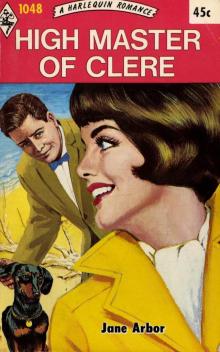 High Master of Clere
High Master of Clere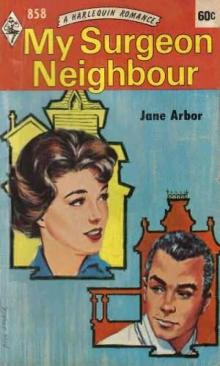 My Surgeon Neighbour
My Surgeon Neighbour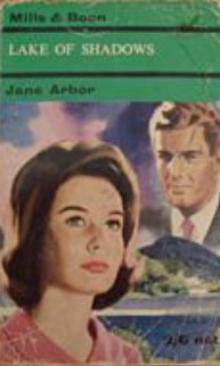 Lake of Shadows
Lake of Shadows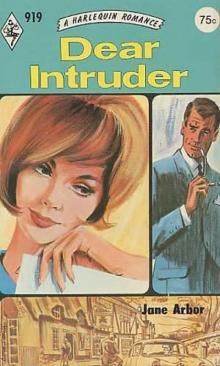 Dear Intruder
Dear Intruder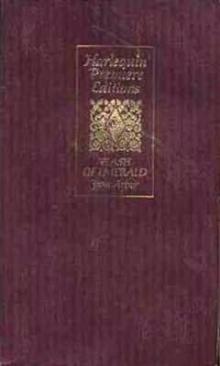 Flash of Emerald
Flash of Emerald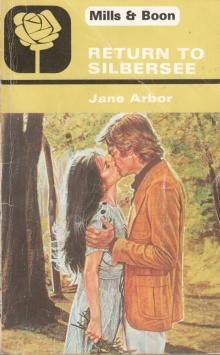 Return to Silbersee
Return to Silbersee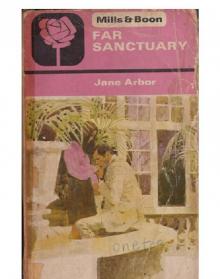 Far Sanctuary
Far Sanctuary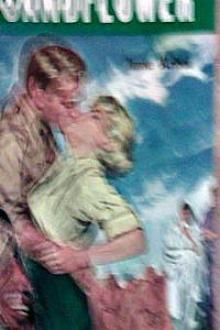 Sandflower
Sandflower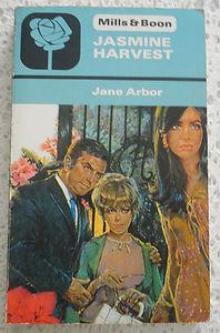 Jasmine Harvest
Jasmine Harvest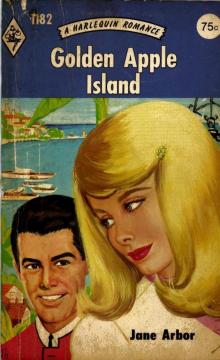 Golden Apple Island
Golden Apple Island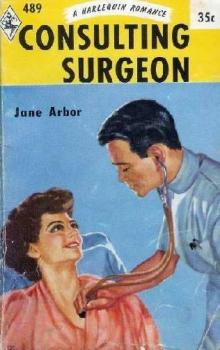 Consulting Surgeon
Consulting Surgeon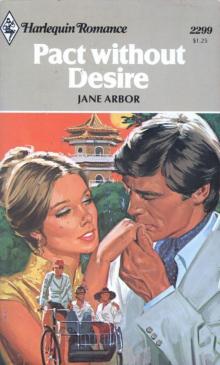 Pact without desire
Pact without desire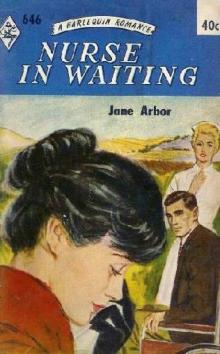 Nurse in Waiting
Nurse in Waiting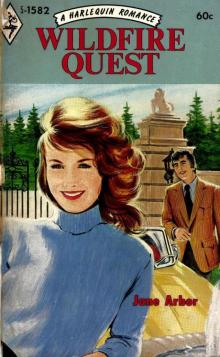 Wildfire Quest
Wildfire Quest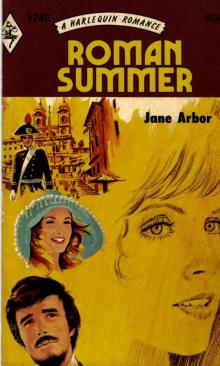 Roman Summer
Roman Summer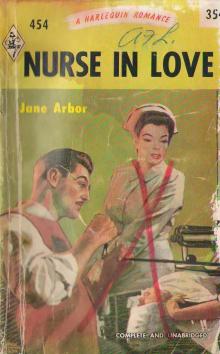 Nurse in Love
Nurse in Love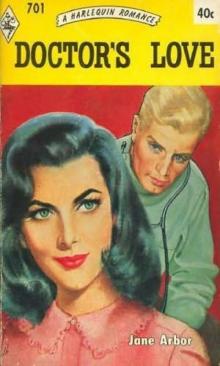 Doctor's Love
Doctor's Love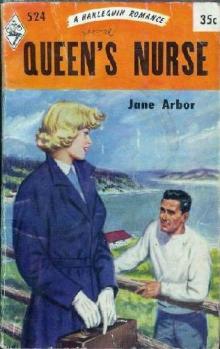 Queen's Nurse
Queen's Nurse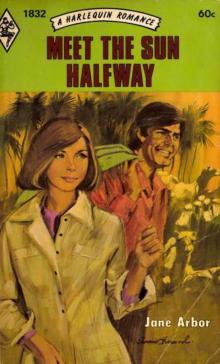 Meet the Sun Halfway
Meet the Sun Halfway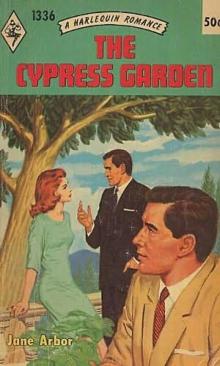 The Cypress Garden
The Cypress Garden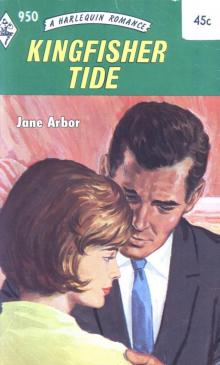 Kingfisher Tide
Kingfisher Tide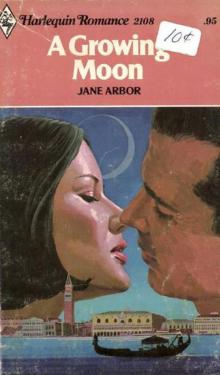 A Growing Moon
A Growing Moon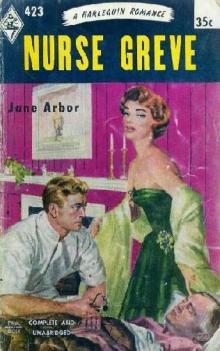 Nurse Greve
Nurse Greve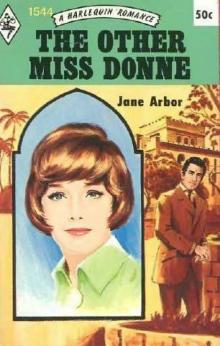 The Other Miss Donne
The Other Miss Donne